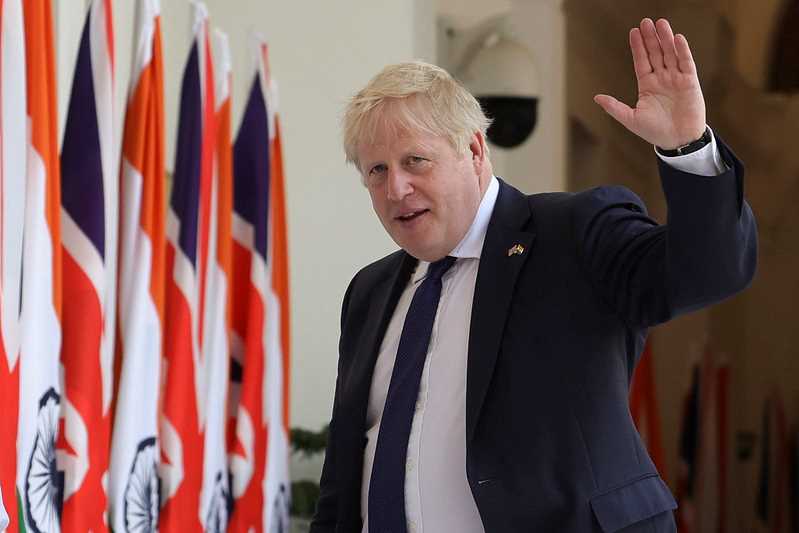
Will Local Elections End Boris Johnson’s Premiership? | Anindya Bhattacharyya
“What happens when the right populists win power but turn out to be completely incapable of living up to their promises? That is what Johnson and the Tories have run into.”
The local elections this Thursday 5th May will be the first serious electoral test for Boris Johnson since the “partygate” revelations about his boozy lockdown gatherings put the first significant dent in his ratings.
There is no doubt that Johnson’s antics and bullshit have alienated a sizeable chunk of his popular base. That is why the Tories are expecting to lose councils and councillors to Labour, especially in urban areas.
But there is no strong evidence that these disillusioned Conservatives are moving in Labour’s direction. Even Keir Starmer’s supporters in the press (and he has many supporters in the press) admit his performance has been lacklustre at best.
So I expect not many people will vote on Thursday, and those that do will mostly be committed supporters of one party or another, as opposed to “floating voters” (who typically “float” precisely because they are disengaged with mainstream politics). Labour is suggesting it may win control of the London boroughs of Barnet and Wandsworth, both longtime Tory flagships. But the party might lose control of cities like Sunderland.
As for the Tories, their problems lie deeper than Johnson, who was always a weak and pathetic creature motivated by ambition and self-regard. His one talent was box office appeal: he won London mayor in 2008 by welding together the Tory and far right vote in the suburbs, and he pulled off that trick again in 2019 to win the Tory leadership and then a solid parliamentary majority.
But the crucial aspect of this box office appeal was his ability to reach out beyond the ranks of the respectable Tory voting public – his populism, in the precise sense of the word.
This populist appeal invariably rubs up against respectable ruling class opinion – and Brexit certainly did that. It rails against elites and bureaucracies, real and imagined, and champions the cause of the common man or woman.
So the ruling class, itself bereft of any kind of strategy or direction beyond wishing things could go back to how they were in the 1990s, more or less reluctantly concedes political power to the right populists. This pattern has repeated itself across the globe: in the US, in India, in Russia, in Brazil…
But what happens when the right populists win power but turn out to be completely incapable of living up to their promises? That is what Johnson and the Tories have run into. It’s noticeable that among the first in Tory circles to turn on Johnson were the so called Blue Wall MPs, those hungry young Tories who won unexpectedly in previously Labour areas, and saw Brexit as primarily a means of freeing up the state to intervene in their local economies.
So Christian Wakeford in Bury has defected to Labour. And Labour whips are apparently in serious talks with Dehenna Davison, MP for Bishop Auckland, who only a few years ago was pictured palling around with the far right. Both only won their seats because of Labour Leave voters staying at home and in some cases switching to the Tories. Having lost faith in Johnson, they are looking after their own prospects.
And this is the fundamental problem for the Tories – that the populist coalition they assembled to win power can crumble as easily it was put together. Johnson’s image and charisma played a vital role in holding that coalition together, but he who lives by the pen dies by the pen, and his brand is now tarnished, perhaps fatally.
The one thing they have in their favour is the absence of an opponent like Jeremy Corbyn, who could also reach out and channel the political energies of the disaffected and excluded. Labour under Starmer is fixated on purging every last trace of Corbynism. It cooks up a fantasy figure of the “socially conservative Blue Wall swing voter” to justify every rightward lurch and every new blow struck against the left.
All of this can fool the credulous know-nothings that make up the bulk of Britain’s official political commentariat. But will it play anywhere beyond that? I doubt it. The Tories will continue to slowly sink under their own contradictions. And Labour will further chase after some imaginary centre ground and further descend into a sad tribute act to Tony Blair’s New Labour.
The real struggles will take place outside of the official electoral arena – in the streets and workplaces. Strikes and unionisation are rising for the time in many years. There is a militant mood waiting to be tapped, especially among young people and oppressed minorities. That’s what needs to be organised and built right now – and business-as-usual politics has nothing to say to that.
Anindya Bhattacharyya is a writer and activist based in London, on Twitter at @bat020
Cover image via No10 on Flickr


Do We Still Need Libraries? In Our Modern World, The Answer Is Yes